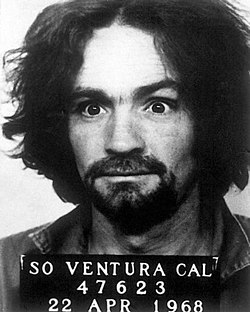
Introduction
Charles Manson, a name that evokes a mix of horror and fascination, was the notorious leader of the Manson Family, responsible for some of the most heinous crimes in American history. His life and actions have not only shaped public perception of crime but also influenced cultural narratives surrounding the 1960s counterculture movement. Understanding Manson’s legacy is crucial in analyzing the broader societal implications of cults and criminal behaviors.
The Rise of Charles Manson
Manson was born on November 12, 1934, in Cincinnati, Ohio. His troubled childhood, marked by neglect and criminal behavior, set the stage for his later life. In the late 1960s, he gathered a group of followers—mostly young disenfranchised individuals—who were drawn to his charismatic but disturbing rhetoric. Manson preached a doctrine that combined elements of apocalyptic prophecy and rock music, asserting that a race war known as “Helter Skelter” was imminent.
The Infamous Crimes
The Manson Family became notorious for the brutal murders of several individuals, most notably the actress Sharon Tate and four others in August 1969. These killings shocked the nation and marked a grim turning point in the public perception of peace and love popularized by the 1960s counterculture. Manson’s followers executed the murders at his behest, believing they were enacting his vision of societal chaos.
Following the arrest of Manson and his followers, the trial revealed not just the gruesome nature of the crimes, but also the psychological manipulation Manson employed to command loyalty from his followers. In 1971, Manson was convicted of first-degree murder and conspiracy to commit murder, leading to a life sentence in prison.
Cultural Impact and Legacy
Charles Manson’s legacy extends beyond the crimes he committed. He became a symbol of the darkness that can lurk beneath seemingly peaceful movements. Over the decades, his story has been the subject of numerous books, films, and documentaries, showcasing the cultural obsession with charismatic leaders and the fragility of human psychology in the face of manipulation.
The societal fascination with Manson raises critical questions about crime, cult dynamics, and the vulnerabilities that can lead individuals to join radical groups. His life serves as a cautionary tale on the complexities of moral responsibility and the potential dangers of blind allegiance to charismatic figures.
Conclusion
Charles Manson remains a controversial figure, as his life and crimes continue to resonate in discussions of moral ambiguity and societal vulnerability. As we reflect on his legacy, it is essential to consider the implications of his influence on both individuals and society. Studying the life of Charles Manson not only helps us understand the psyche of one man but also invites us to analyze the conditions that foster such extreme behaviors in others, emphasizing a human inclination towards both darkness and redemption.



